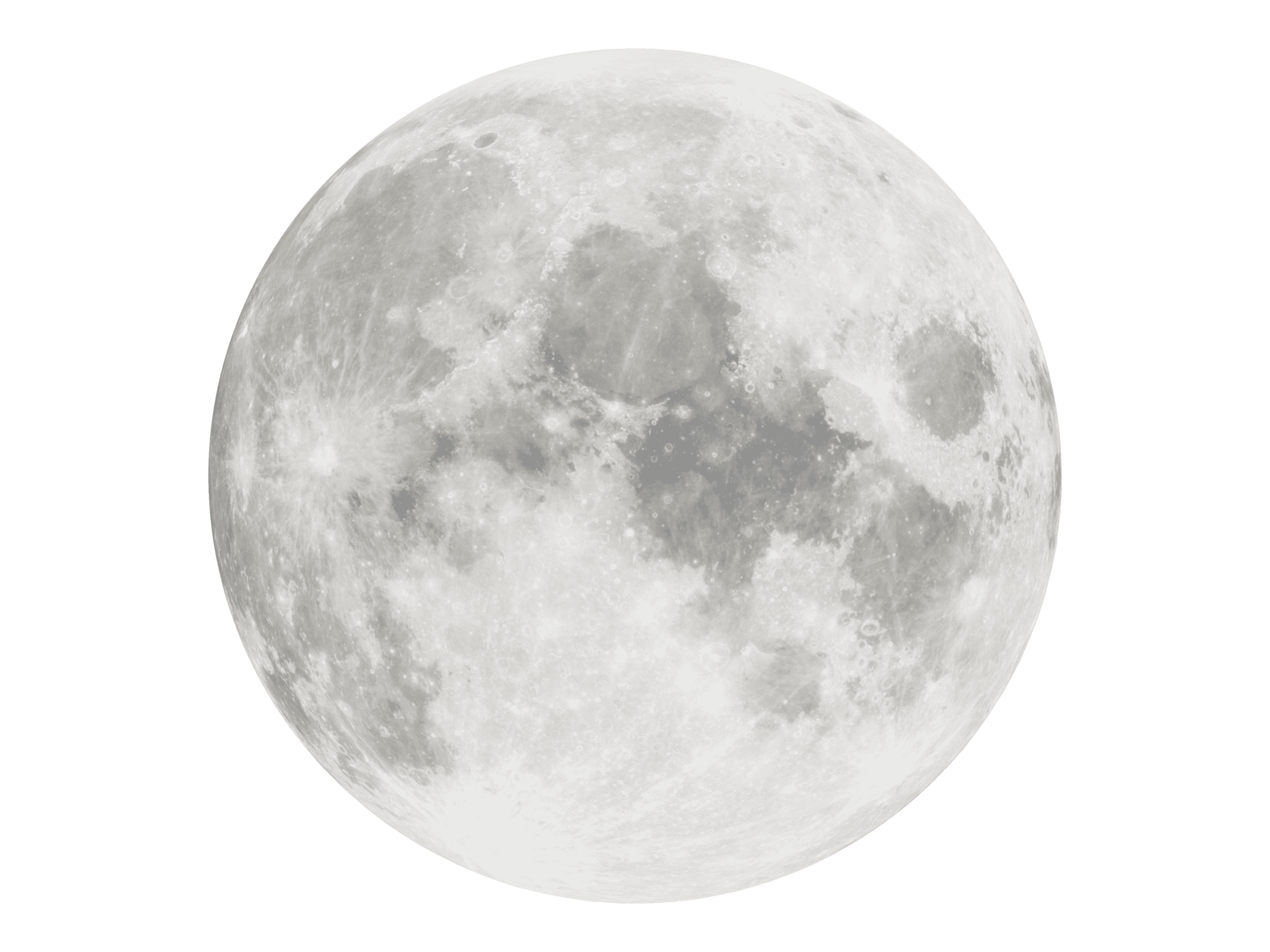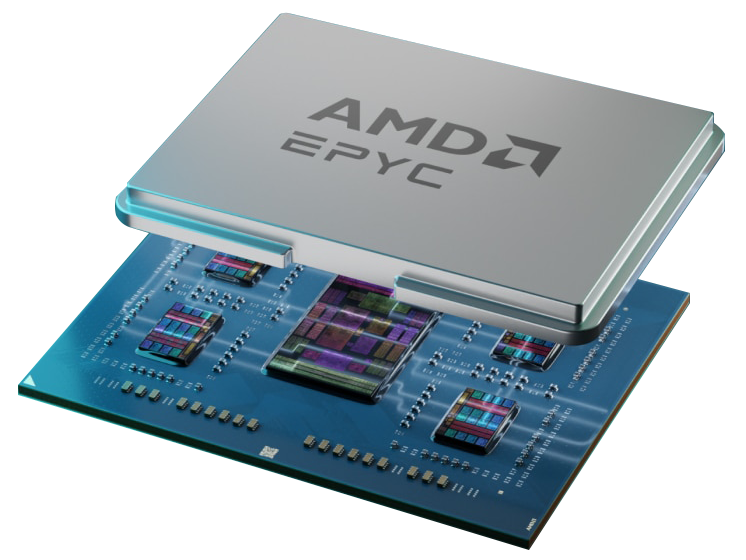

An EPYC™ Processor for Any Workload
No matter what the workload demands are, the 4th Gen AMD EPYC™ processor portfolio offers a solution to advance your business. From general purpose to edge computing, there is a processor to meet every data center need.


Leadership Performance
AMD EPYC™ Processors power the highest-performing x86 servers for the modern data center, on prem and in cloud environments, across industries.1

Energy Efficiency
AMD EPYC™ processors power the most energy-efficient x86 servers, helping you reduce energy costs and meet corporate sustainability goals.2

Security
Every AMD EPYC™ processor includes AMD Infinity Guard, a comprehensive suite of security features that can keep your data safe.3
World’s Best Data Center CPU
Innovative Design for a Wide Range of Workloads
The 4th Generation AMD EPYC™ processor family includes general purpose and workload-optimized solutions.
These processors include up to 128 “Zen 4” or “Zen 4c” cores with exceptional memory bandwidth and capacity. The innovative AMD chiplet architecture enables high performance, energy-efficient solutions optimized for your different computing needs.

General Purpose and Enterprise Computing
EPYC™ 9004 Series Processors
Drive exceptional time-to-results for your business-critical applications with AMD EPYC™ 9004 processors. Formerly codenamed “Genoa”, this flagship CPU series features leadership performance and is optimized for a wide range of workloads spanning from the enterprise to the cloud.
· Accelerate workloads with the world's highest-per-core-performance x86 CPU4
· Modernize data center footprint and reduce energy consumption
· Minimize TCO while maximizing results across a wide range of workloads
· Accelerate workloads with the world's highest-per-core-performance x86 CPU4
· Modernize data center footprint and reduce energy consumption
· Minimize TCO while maximizing results across a wide range of workloads
Technical Computing
EPYC™ 9004 Series Processors with AMD 3D V-Cache™ Technology
Reach new heights to help solve some of today’s most complex design and simulation challenges with AMD EPYC™ 9004 Series Processors with 3D V-Cache™ Technology, formerly codenamed “Genoa-X”.
· Deliver breakthrough performance with up to 96 “Zen 4” cores and 1152 MB of L3 cache per socket
· Accelerate product design and enable low CAPEX and OPEX
· Boost the productivity of your demanding design and simulation workloads with the world’s highest performance x86 server processors for technical computing.5
· Deliver breakthrough performance with up to 96 “Zen 4” cores and 1152 MB of L3 cache per socket
· Accelerate product design and enable low CAPEX and OPEX
· Boost the productivity of your demanding design and simulation workloads with the world’s highest performance x86 server processors for technical computing.5
Cloud-Native Computing
EPYC™ 97x4 Series Processors
4th Gen AMD EPYC™ 97x4 processors, formerly codenamed “Bergamo”, offer the performance, density, and energy efficiency to provide no-compromise computing for growing cloud native environments.
· System-level thread density for the scalable performance needed by cloud-native workload growth and infrastructure consolidation
· Extensive x86 software compatibility
· A full ecosystem of services to support fast, seamless deployment
· System-level thread density for the scalable performance needed by cloud-native workload growth and infrastructure consolidation
· Extensive x86 software compatibility
· A full ecosystem of services to support fast, seamless deployment
Cloud Services, Intelligent Edge, and Telco Computing
EPYC™ 8004 Series Processors
AMD EPYC™ 8004 Processors, formerly codenamed “Siena”, designed to be a highly energy efficient CPU for single-socket platforms. With up to 64 “Zen 4c” cores and 6 channels of DDR5 memory in a small footprint, these processors are ideal for space and power-constrained deployments.
· Excellent performance in a power envelope as low as 70 watts
· NEBS-friendly and extended operating range for quieter operations and non-data center deployments
· Optimizes performance for the cloud, a telco network, a retail setting, or the intelligent edge.
· Excellent performance in a power envelope as low as 70 watts
· NEBS-friendly and extended operating range for quieter operations and non-data center deployments
· Optimizes performance for the cloud, a telco network, a retail setting, or the intelligent edge.

Request consultation
The 4th Generation AMD EPYC™ processor family includes general purpose and workload-optimized solutions.
1. SP5-143A: SPECrate®2017_int_base comparison based on performing system published scores from www.spec.org as of 6/13/2013. 2P AMD EPYC 9754 scores 1950 SPECrate®2017_int_base http://www.spec.org/cpu2017/results/res2023q2/cpu2017-20230522-36617.html is higher than all other 2P servers. 1P AMD EPYC 9754 scores 981 SPECrate®2017_int_base score (981.4 score/socket) http://www.spec.org/cpu2017/results/res2023q2/cpu2017-20230522-36613.html is higher per socket than all other servers. SPEC®, SPEC CPU®, and SPECrate® are registered trademarks of the Standard Performance Evaluation Corporation. See www.spec.org for more information.
2. EPYC-028C: SPECpower_ssj® 2008, SPECrate®2017_int_energy_base, and SPECrate®2017_fp_energy_base based on results published on SPEC’s website as of 11/10/22. VMmark® server power-performance / server and storage power-performance (PPKW) based results published at https://www.vmware.com/products/vmmark/results3x.1.html?sort=score. The first 80 ranked SPECpower_ssj®2008 publications with the highest overall efficiency overall ssj_ops/W results were all powered by AMD EPYC processors. For SPECrate®2017 Integer (Energy Base), AMD EPYC CPUs power the first 11 top SPECrate®2017_int_energy_base performance/system W scores. For SPECrate®2017 Floating Point (Energy Base), AMD EPYC CPUs power the first 12 SPECrate®2017_fp_energy_base performance/system W scores. For VMmark® server power-performance (PPKW), have the top four results for 2- and 4-socket matched pair results outperforming all other socket results and for VMmark® server and storage power-performance (PPKW), have the top overall score. See https://www.amd.com/en/claims/epyc4#faq-EPYC-028C for the full list. More information about SPEC® is available at http://www.spec.org. SPEC, SPECrate, and SPECpower are registered trademarks of the Standard Performance Evaluation Corporation. VMmark is a registered trademark of VMware in the US or other countries.
3. GD-183: AMD Infinity Guard features vary by EPYC™ Processor generations. Infinity Guard security features must be enabled by server OEMs and/or Cloud Service Providers to operate. Check with your OEM or provider to confirm support of these features. Learn more about Infinity Guard at https://www.amd.com/en/technologies/infinity-guard
4. SP5-014B: 16-core 4th Gen EPYC 9174F CPU processors result as of 3/31/2023 using SPECrate®2017_int_base and SPECrate®2017_fp_base. The 2P AMD EPYC 9174F powered server scored 447 SPECrate®2017_int_base (http://spec.org/cpu2017/results/res2023q1/cpu2017-20230313-34765.html) or 13.97 int score/core and 599 SPECrate®2017_fp_base (http://spec.org/cpu2017/results/res2023q1/cpu2017-20230313-34780.html) or 18.72 fp score/core both of which is higher than all other respective x86 2P scores published on the SPEC® website. SPEC®, SPEC CPU®, and SPECrate® are registered trademarks of the Standard Performance Evaluation Corporation. See www.spec.org for more information.
5. SP5-165: The EPYC 9684X CPU is the world’s highest performance x86 server CPU for technical computing, comparison based on SPEC.org publications as of 6/13/2023 measuring the score, rating or jobs/day for each of SPECrate®2017_fp_base (SP5-009E), Altair AcuSolve (https://www.amd.com/en/processors/server-tech-docs/amd-epyc-9004x-pb-altair-acusolve.pdf), Ansys Fluent (https://www.amd.com/en/processors/server-tech-docs/amd-epyc-9004x-pb-ansys-fluent.pdf), OpenFOAM (https://www.amd.com/en/processors/server-tech-docs/amd-epyc-9004x-pb-openfoam.pdf), Ansys LS-Dyna (https://www.amd.com/en/processors/server-tech-docs/amd-epyc-9004x-pb-ansys-ls-dyna.pdf), and Altair Radioss (https://www.amd.com/en/processors/server-tech-docs/amd-epyc-9004x-pb-altair-radioss.pdf) application test case simulations average speedup on 2P servers running 96-core EPYC 9684X vs top 2P performance general-purpose 56-core Intel Xeon Platinum 8480+ or top-of-stack 60-core Xeon 8490H based server for technical computing performance leadership. “Technical Computing” or “Technical Computing Workloads” as defined by AMD can include: electronic design automation, computational fluid dynamics, finite element analysis, seismic tomography, weather forecasting, quantum mechanics, climate research, molecular modeling, or similar workloads. Results may vary based on factors including silicon version, hardware and software configuration and driver versions. SPEC®, SPECrate® and SPEC CPU® are registered trademarks of the Standard Performance Evaluation Corporation. See www.spec.org for more information.
2. EPYC-028C: SPECpower_ssj® 2008, SPECrate®2017_int_energy_base, and SPECrate®2017_fp_energy_base based on results published on SPEC’s website as of 11/10/22. VMmark® server power-performance / server and storage power-performance (PPKW) based results published at https://www.vmware.com/products/vmmark/results3x.1.html?sort=score. The first 80 ranked SPECpower_ssj®2008 publications with the highest overall efficiency overall ssj_ops/W results were all powered by AMD EPYC processors. For SPECrate®2017 Integer (Energy Base), AMD EPYC CPUs power the first 11 top SPECrate®2017_int_energy_base performance/system W scores. For SPECrate®2017 Floating Point (Energy Base), AMD EPYC CPUs power the first 12 SPECrate®2017_fp_energy_base performance/system W scores. For VMmark® server power-performance (PPKW), have the top four results for 2- and 4-socket matched pair results outperforming all other socket results and for VMmark® server and storage power-performance (PPKW), have the top overall score. See https://www.amd.com/en/claims/epyc4#faq-EPYC-028C for the full list. More information about SPEC® is available at http://www.spec.org. SPEC, SPECrate, and SPECpower are registered trademarks of the Standard Performance Evaluation Corporation. VMmark is a registered trademark of VMware in the US or other countries.
3. GD-183: AMD Infinity Guard features vary by EPYC™ Processor generations. Infinity Guard security features must be enabled by server OEMs and/or Cloud Service Providers to operate. Check with your OEM or provider to confirm support of these features. Learn more about Infinity Guard at https://www.amd.com/en/technologies/infinity-guard
4. SP5-014B: 16-core 4th Gen EPYC 9174F CPU processors result as of 3/31/2023 using SPECrate®2017_int_base and SPECrate®2017_fp_base. The 2P AMD EPYC 9174F powered server scored 447 SPECrate®2017_int_base (http://spec.org/cpu2017/results/res2023q1/cpu2017-20230313-34765.html) or 13.97 int score/core and 599 SPECrate®2017_fp_base (http://spec.org/cpu2017/results/res2023q1/cpu2017-20230313-34780.html) or 18.72 fp score/core both of which is higher than all other respective x86 2P scores published on the SPEC® website. SPEC®, SPEC CPU®, and SPECrate® are registered trademarks of the Standard Performance Evaluation Corporation. See www.spec.org for more information.
5. SP5-165: The EPYC 9684X CPU is the world’s highest performance x86 server CPU for technical computing, comparison based on SPEC.org publications as of 6/13/2023 measuring the score, rating or jobs/day for each of SPECrate®2017_fp_base (SP5-009E), Altair AcuSolve (https://www.amd.com/en/processors/server-tech-docs/amd-epyc-9004x-pb-altair-acusolve.pdf), Ansys Fluent (https://www.amd.com/en/processors/server-tech-docs/amd-epyc-9004x-pb-ansys-fluent.pdf), OpenFOAM (https://www.amd.com/en/processors/server-tech-docs/amd-epyc-9004x-pb-openfoam.pdf), Ansys LS-Dyna (https://www.amd.com/en/processors/server-tech-docs/amd-epyc-9004x-pb-ansys-ls-dyna.pdf), and Altair Radioss (https://www.amd.com/en/processors/server-tech-docs/amd-epyc-9004x-pb-altair-radioss.pdf) application test case simulations average speedup on 2P servers running 96-core EPYC 9684X vs top 2P performance general-purpose 56-core Intel Xeon Platinum 8480+ or top-of-stack 60-core Xeon 8490H based server for technical computing performance leadership. “Technical Computing” or “Technical Computing Workloads” as defined by AMD can include: electronic design automation, computational fluid dynamics, finite element analysis, seismic tomography, weather forecasting, quantum mechanics, climate research, molecular modeling, or similar workloads. Results may vary based on factors including silicon version, hardware and software configuration and driver versions. SPEC®, SPECrate® and SPEC CPU® are registered trademarks of the Standard Performance Evaluation Corporation. See www.spec.org for more information.
©2023 Advanced Micro Devices, Inc. All rights reserved.
AMD, the AMD logo, EPYC, and combinations thereof are trademarks of Advanced Micro Devices, Inc.
AMD, the AMD logo, EPYC, and combinations thereof are trademarks of Advanced Micro Devices, Inc.










